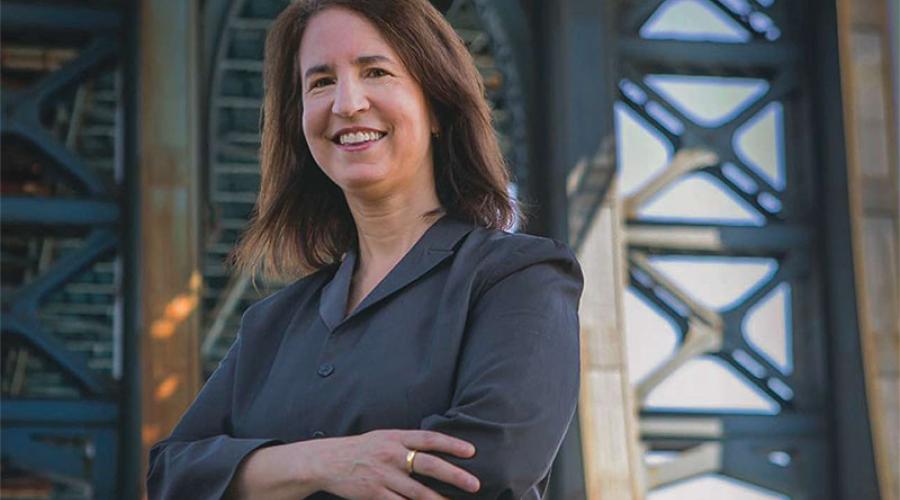
Catalyst for Change
Sara Horowitz ILR '84, executive director of the 180,000-member Freelancers Union she founded in 1995, goes right to her point: the workplace we knew is gone.
The 2008 financial crash finished it off. "You are not just going to be able to go and 'get a job.' There isn't going to be such a thing as the workplace," she says. Gigs, not jobs, will fill out careers, she predicts. By 2020, some economists say, half of America's labor force will be self-employed workers.
"We're not going back. These are the new jobs … we have to level with people about the future. Freelancing is going to be a part of their lives. In the recession, those freelancers who were nimble did pretty fine," and those who weren't agile suffered the most, says Horowitz, a MacArthur Foundation fellow. In 2011, Forbes named her one of its "Top 30 Social Entrepreneurs" and Businessweek put her on its "25 Most Promising Social Entrepreneurs" list.
In the 1970s, she was at the bottom of a list. "I was the worst one," Horowitz said, referring to her Brooklyn Friends high school track team. She kept running, though, and still does.
In 2008, Horowitz launched the Freelancers Insurance Co., which enrolls more than 25,000 individuals and their families. The union and the insurance organization operate out of the same Brooklyn building. Horowitz vividly remembers early on struggling with the union's business model. "This is totally not going to work," she thought.
As unions lost strength in many sectors, though, Horowitz plunged more deeply into the labor movement. Now, the model works.
Failure and candor are great teachers, "if you can stomach it … always tell yourself the truth, even when it stinks," Horowitz says. "None of us have the obligation to be successful, but we have the obligation to keep trying," especially when it comes to building an economically sustainable society.
"It's got to be about humanity. We are all change agents. You, too, must figure out your place in this. There's always going to be a way for workers to come together," says Horowitz, a leader in the burgeoning freelance workforce, estimated at 42 million in the United States.
Imagination and Resilience
A sustainable economy requires us to be imaginative, resilient and entrepreneurial, like the Knights of Labor, Samuel Gompers, Sidney Hillman, Bayard Rustin and others who led the way for workers, she says.
"Workers are going to need to come together to build their own systems" and, ultimately, a new mentality, says Horowitz, author of "The Freelancer's Bible."
Many questions remain for Horowitz and millions of workers. "What's the future? How are we going to build back economic security? What's this next society going to look like? It's dependent on the new workforce coming together," she says. "These workers will be architecting the next safety net."
This fall, a medical practice sponsored by the Freelancers Union opened in Brooklyn. It will serve several thousand people. Next year in Oregon, New York and New Jersey, the union begins enrolling members in its nonprofit health care "COOPs" — Consumer Operated and Oriented Plans. Expected by the union to serve up to 200,000 people, the insurance plans are funded by $340 million in loans from the Affordable Care Act.
Crystallizing Ideals
At Cornell, Horowitz was captivated by ILR professors such as Nick Salvatore and Clete Daniel. She led the Cornell Organization for Labor Action. The experience "taught me how to run a meeting and an organization," she says.
After college, she worked as a union organizer and labor Lawyer. A moment in 1994 in a Manhattan hospital courtyard crystallized Horowitz's shift from labor lawyer to union founder.
The older, African-American sous chefs she represented were replaced when their employer upgraded a section of the facility to luxurious accommodations and dining options, Horowitz recalls. "I was feeling their pain about their life's work and that they weren't wanted in this kitchen. There was something palpable about the message they were getting."
That moment helped catapult her into an idea. The Freelancers Union formed a year later. "I really, profoundly believe in unions. I don't think there's a democracy that exists without them. Everyone said labor was dead in the 1920s and look what happened. It came back through industrial unions in the '30s and '40s."


